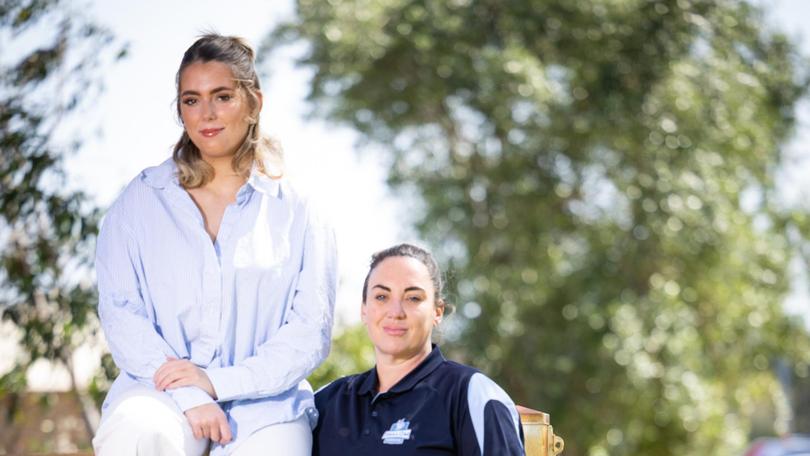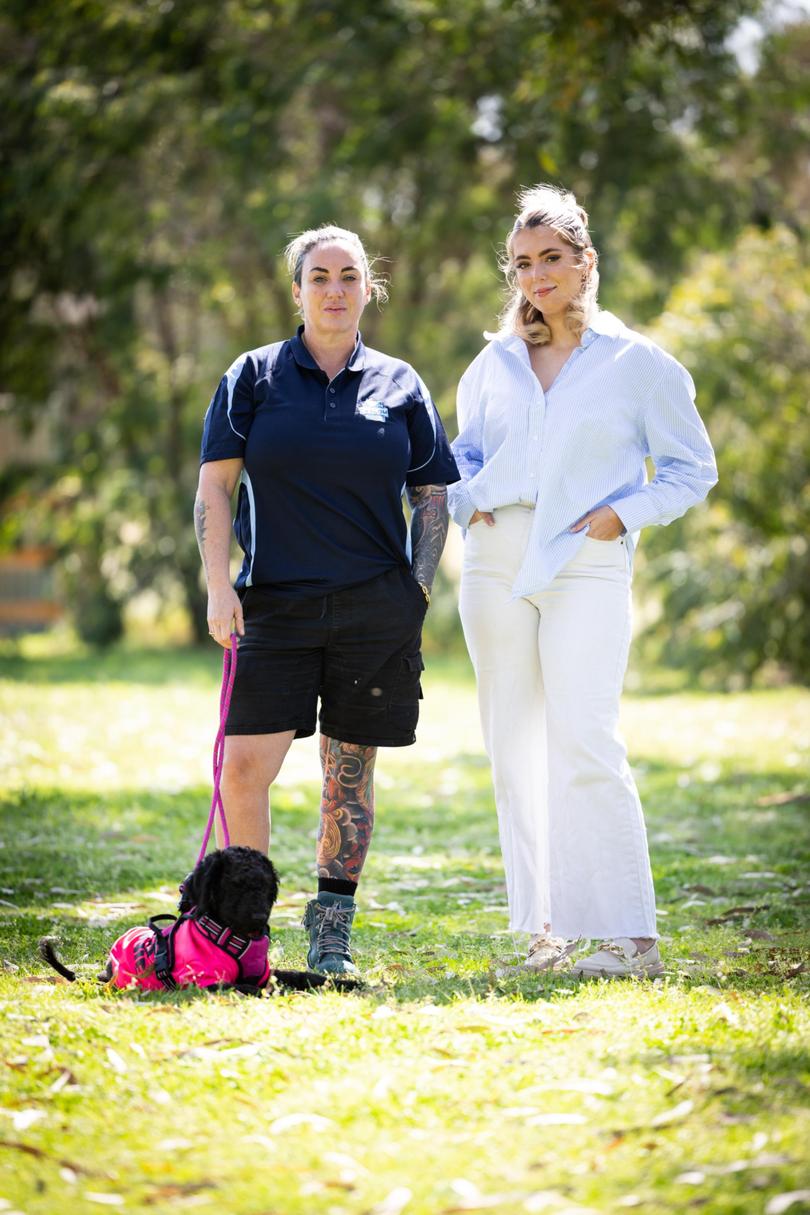Shalom House Diaries: Many women residents are also victims of horrific domestic violence
Addiction is just one issue for the women at Australia’s toughest rehab centre, with many also victims of horrific domestic violence that would ‘break most people’.

“If someone wants to get them, he will have to get through all of us first.”
The “them” referred to by reformed meth addict Dee Yacoub are the four dozen women who are residents of Shalom House, the Swan Valley rehabilitation centre considered Australia’s toughest detox facility.
The “he” is any number of former husbands and partners who have beaten and abused their drug-addicted spouses.
Sign up to The Nightly's newsletters.
Get the first look at the digital newspaper, curated daily stories and breaking headlines delivered to your inbox.
By continuing you agree to our Terms and Privacy Policy.Yacoub is the women’s program manager at Shalom. It’s a relatively new position because the 12-year-old rehab centre only started admitting women during the COVID pandemic.
Unfortunately, demand for Shalom’s tough-love reform program is as high among women as it is among men.
All residents are fragile, but the women are often especially so because they have invariably been the victims of quite horrific domestic violence.
Their stories were some of the most confronting encountered by this reporter during a recent week-long stay at Shalom House, living and working with the 160 residents.
“They have been through some situations that would break most people,” Yacoub, 47, says.
Between 40 and 50 women live at Shalom at any one time, some with their children. They are spread between different properties run by the religious charity.
Like the men at Shalom, they are expected to work for their keep — and they do.
When not training or working at Shalom’s cafe, or sorting donated clothes so residents have fresh shirts on their backs, they are in hi-vis working on one of the centre’s building projects.
In between all that they are re-learning everyday skills such as cooking and cleaning. Reading the bible, praying and attending church accounts for the lion’s share of whatever other time is left.
The religious requirements at Shalom, and the demand that residents undertake daily physical labour, make some observers nervous about the charity’s intention.
Founder Peter Lyndon-James is regularly accused of running a cult.
Some of the women in the program are non-plussed about the faith side of their rehabilitation, treating church ceremonies and bible readings more as periods of “mindfulness” than religious indoctrination.
Many of them do find God, though. Importantly, just about all of them find peace.
“They know they’re safe here,” says Yacoub, a deeply committed Christian who was not remotely religious for most of her life.
“Oh no, I was an atheist,” she scoffs when asked whether she had faith growing up.
Having served a year in jail for manufacturing methamphetamine and hopelessly addicted to the drug she had learnt to cook, Yacoub was terrified that the Government would take her daughter away from her forever.
She cut a desperate deal with the God she didn’t think existed.
“I asked for two weeks of being clean because that’s what I naively thought would be enough to please everyone,” she recalls.
“I asked for two and I got six.”
She never looked back, successfully rehabilitating herself and building a new life helping other women conquer their demons.
Her faith was tested a couple of years ago when she realised her daughter Jewel had followed her footsteps into the drug world.
“I remember one night I was going to what I thought was a party, but it was more like a halfway house that was a brothel,” Jewel says.

It wasn’t the first time the now 22-year-old’s drug use had put her in danger.
“I woke up one morning covered in bruises and had no idea what had happened. I said to mum that I needed help.”
Jewel was admitted into Shalom, entrusting the care of her daughter to her mother and stepfather.
“When she was in Shalom I wasn’t her mum,” Dee says.
Jewel completed the five stages of the program and “graduated” this month.
Like all residents, ongoing sobriety is not a given but Jewel believes the faith she found at Shalom will make the job of staying straight easier.
Originally published on The Nightly

